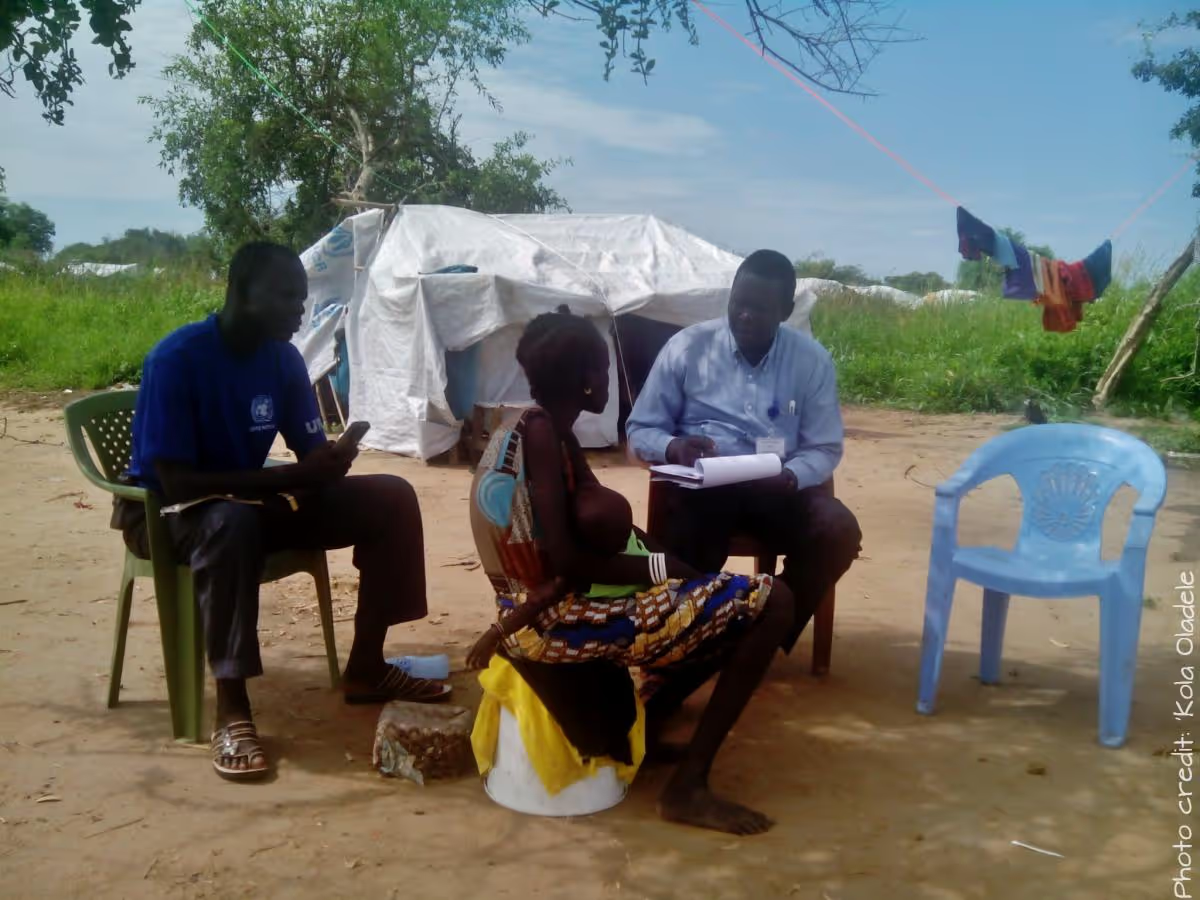Using LQAS to Monitor the Health Status of IDPs in South Sudan

Following the outbreak of insecurity that broke out in South Sudan on December 15th 2013, more than 150,000 Internally Displaced Persons (IDPs) crossed the Nile from Jonglei State to find security in neighbouring Awerial County, Lakes State. The communities originally come from Bor South, Twic East, Duk and Pibor counties in Jonglei State.
This population is not expected to return to Jonglei any time soon due to continued unrest and flooding. On the contrary they have remained in the settlement and once in a while some of them go back to Jonglei state across the Nile to check their properties, returning to Awerial County where their families remain.
IDPs in Awerial are under the responsibility of the Awerial County Commissioner, Awerial and Yirol West County Health Department and the Ministry of Health (MOH) of Lakes State collaborating with Jonglei State MOH in the provision of health care and supported by humanitarian partners. The population is currently dispersed throughout the county. The main site for IDPs in Awerial County is Mingkaman, site 0, with roughly 90,000 IDPs. The massive influx has seriously affected the provision of health services and other health-determining living conditions, despite the efforts of the State MOH and humanitarian organizations.

In order to make available accurate data and help the MOH authorities and the humanitarian agencies to allocate more efficiently their scarce resources in this area, the Liverpool School of Tropical Medicine (LSTM), which has worked in South Sudan since 2009, received a grant from the Humanitarian Innovation Fund (HIF) to use Lot Quality Assurance Sampling (LQAS) methodology to conduct a household survey in Awerial IDP settlements.
LSTM, in conjunction with the MOH planned and implemented the household survey, which aimed to achieve the following objectives: 1) to investigate the use of the LQAS methodology for providing valuable data about the health status, knowledge, health seeking behaviour and coverage of health services in IDP settlements, 2) to estimate coverage proportions for key indicators at the IDP settlement in Awerial that can be used for refining programme strategies, strengthen reporting and allocation of resources by the MOH, State MOH and Implementing Partners, 3) to detect the variability among key indicators in Supervision areas; and 4) to build local technical capacity in the MOH, State MOH, County Health Department staff to plan, implement and use LQAS Household Survey data in IDP settlements.
LSTM in collaboration with the MOH developed an important set of core indicators, which were revised with stakeholders. In line with those indicators, survey questionnaires were developed for each of the following six target groups: Household Heads, Mothers of Children 0-11 Months, Mothers of Children 12-23 Months, Mothers of Children 0-59 Months with Fever in the last Two weeks, Mothers of Children 0-59 Months with Diarrhoea in the last Two weeks and Mothers of Children 0-59 Months Suspected of Pneumonia in the last Two weeks. Survey respondents had to be IDPs who have lived in Awerial IDP Settlement since December 15th 2013.

LSTM conducted a five-day-LQAS Training Workshop to equip all data collectors and supervisors with the required skills to conduct the survey. LSTM, MOH and SMOH staff supervised and provided technical support during the survey implementation to ensure an adequate random selection of households and respondents, and a correct administration of survey questionnaires.
LQAS survey teams accompanied by local field guides visited randomly selected households as per survey protocol. Nineteen respondents from each target group were interviewed in each SA. The data collection process took place from 11th to 16th August 2014.
LSTM has been able to investigate some key essential steps in the use of the LQAS methodology for ensuring valuable data about the health status, knowledge, health seeking behaviour and coverage of health services in IDP settlements.
The project is now conducting data analysis, which will be followed by reporting, survey finding dissemination and subsequent investigation of how the survey findings can be used to improve programme implementation in the IDP settlement.
Stay updated
Sign up for our newsletter to receive regular updates on resources, news, and insights like this. Don’t miss out on important information that can help you stay informed and engaged.
Explore Elrha
Learn more about our mission, the organisations we support, and the resources we provide to drive research and innovation in humanitarian response.


.png)